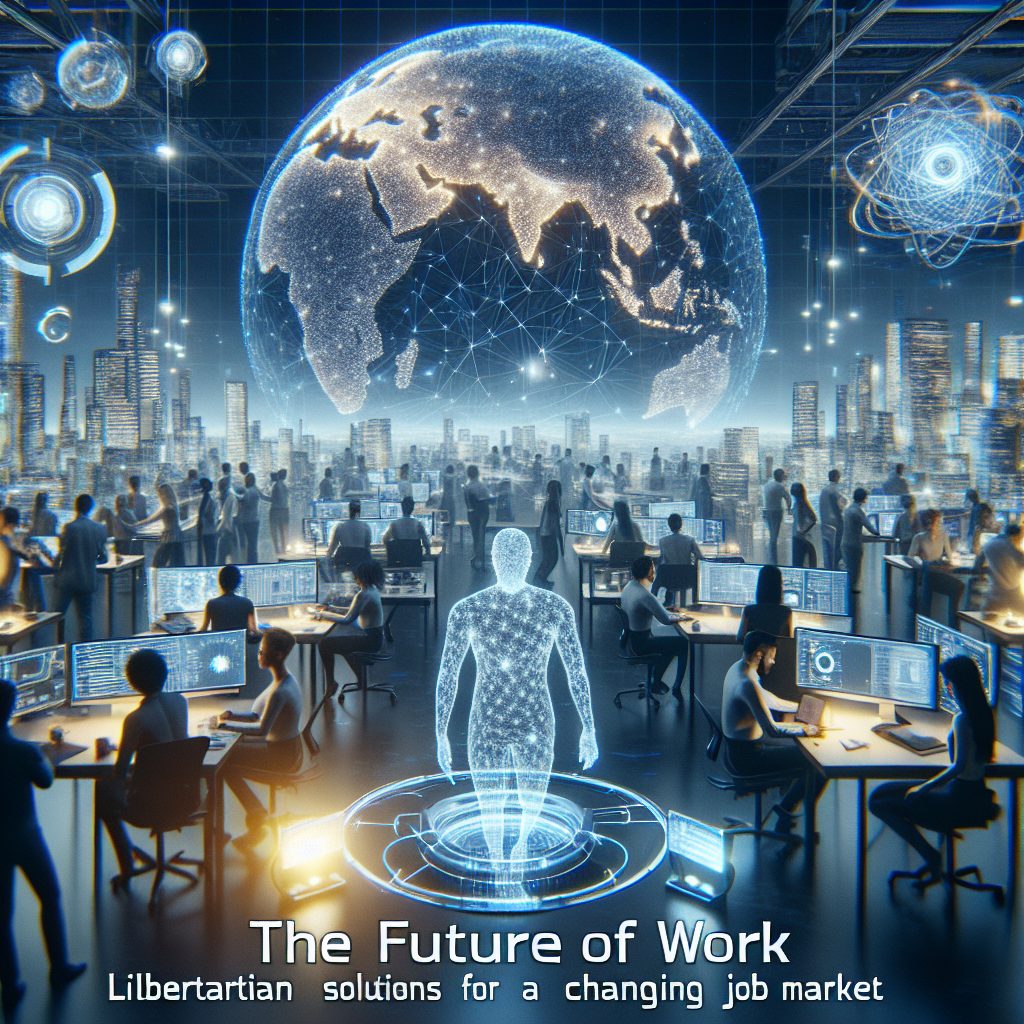The Future of Work: Libertarian Solutions for a Changing Job Market
As we progress into a new era defined by technological advancements and shifting economic landscapes, the job market is undergoing profound changes. The rise of automation, remote work, and the gig economy presents both challenges and opportunities. Libertarian principles can offer innovative solutions to navigate these transformations effectively. In this article, we’ll explore how embracing individual freedom, minimal government interference, and market-driven approaches can shape the future of work.
Understanding the Changing Job Market
The Impact of Automation and AI
Automation and artificial intelligence (AI) are reshaping industries at a breakneck pace. From manufacturing to customer service, jobs are evolving or even disappearing due to technological innovations. According to a recent study, nearly 60% of jobs could be affected by automation by the year 2030. This creates an urgent need for adaptable strategies that empower workers rather than render them obsolete.
The Rise of Remote Work and Gig Economy
The COVID-19 pandemic accelerated the shift towards remote work, prompting both employers and employees to rethink traditional work environments. The gig economy has also gained traction, with freelancers and contract workers becoming a significant portion of the workforce. This new flexibility enhances work-life balance but also raises concerns about job security and benefits.
Libertarian Principles in Employment
Emphasizing Individual Freedom
At the heart of libertarian philosophy is the principle of individual freedom. Allowing workers to choose their paths—whether it’s pursuing freelance opportunities, starting a business, or engaging in remote work—can lead to a more dynamic job market. By minimizing government regulations and barriers to entry, individuals can explore diverse career options aligned with their unique skills and interests.
Reducing Government Interference
Governments often impose regulations that can stifle innovation and limit employment opportunities. By adopting a libertarian approach, policymakers can focus on creating a less restrictive environment that encourages entrepreneurship and self-employment. This can include reducing licensing requirements, minimizing taxes for small businesses, and fostering competition in various sectors.
Solutions for a Flexible Job Market
Embracing Technology and Lifelong Learning
To thrive in a rapidly changing job market, individuals must develop tech-savvy skills and a mindset of lifelong learning. Libertarian solutions advocate for educational freedom, promoting diverse learning options such as online courses, vocational training, and mentorship programs. Encouraging individuals to take ownership of their education prepares them for the demands of emerging industries.
Supporting Alternative Employment Models
In the gig economy, alternative employment models like co-ops and flexible working arrangements can be empowered by libertarian principles. Workers should have the freedom to negotiate their contracts, work schedules, and pay rates. Support for decentralized platforms that connect workers with clients can also facilitate better job opportunities without middlemen.
Challenges and Considerations
Navigating Gig Economy Regulations
While the gig economy offers various benefits, it also presents challenges, including inconsistent income and lack of benefits. Libertarians argue for allowing workers to negotiate their own benefits, fostering an environment where businesses can offer tailored options that suit their workforce. This approach can enhance job satisfaction without overburdening companies with blanket regulations.
Considering Labor Rights and Protections
Critics of libertarian solutions often voice concerns about worker protections and labor rights. Finding a balance between individual freedom and necessary protections is vital. Encouraging voluntary associations and unions can provide workers with a voice while maintaining the integrity of a free-market environment. Transparency in contracts and clear communication can also help safeguard workers’ interests.
Conclusion: A Progressive Future Lies in Freedom
The future of work is rife with uncertainty, but libertarian solutions present an opportunity to address the changing job market through a lens of individual freedom and minimal government intervention. By fostering an environment where innovation thrives, individuals can adapt to new challenges, seize opportunities, and shape a promising future in the workforce. Embracing these principles will empower workers to build fulfilling careers in an increasingly dynamic economy.
In a world where the nature of work is constantly evolving, drawing from libertarian solutions can help us navigate this transition and steer the job market towards a brighter, more innovative future.
Share this content:












Post Comment